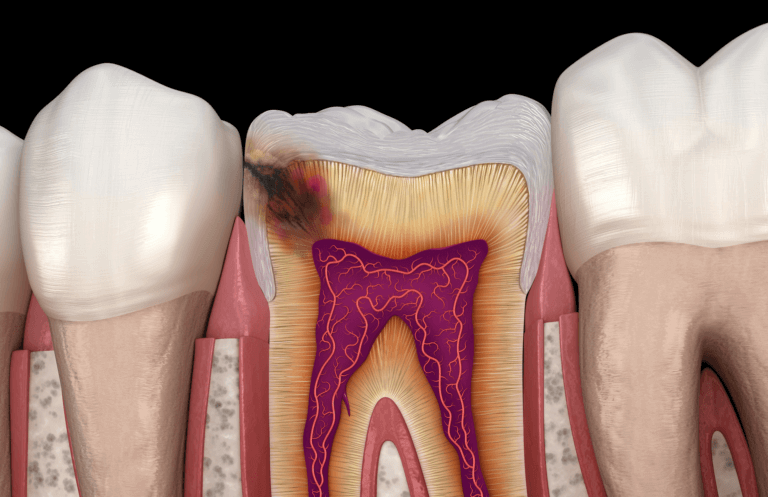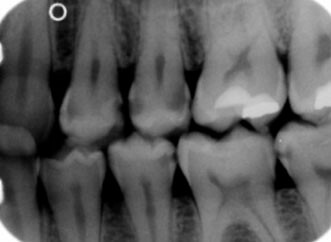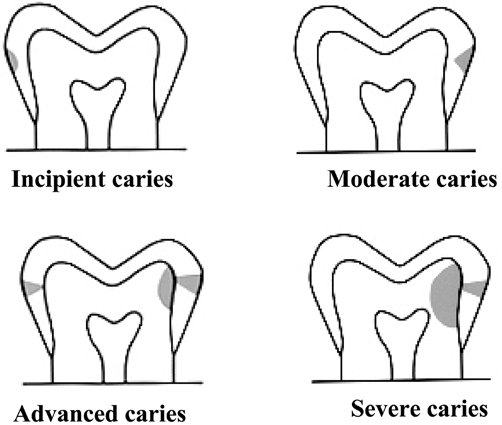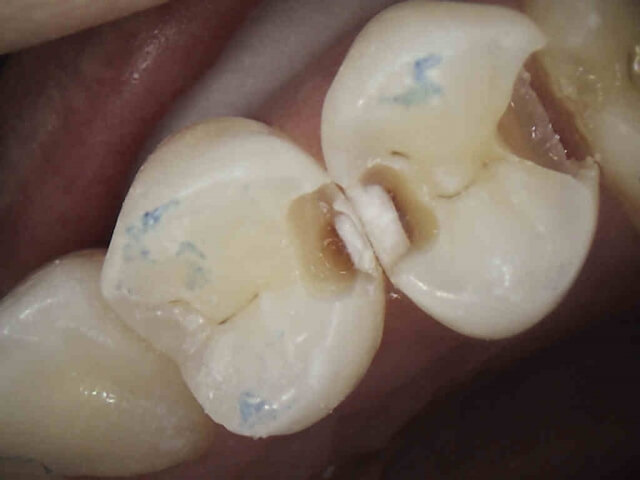Interproximal Cavities

What Are Interproximal Cavities?
Interproximal cavities, also called cavities between teeth, develop in the spaces where two teeth meet. These interproximal spaces are especially vulnerable to decay, as they’re harder to clean with regular brushing and flossing. When plaque and food particles accumulate here, they create an ideal environment for cavity-causing bacteria to thrive. Although interproximal cavities are common, they can be effectively prevented or treated with proper dental care.
Before you contact a Toronto dentist to examine Interproximal Cavities, there are some things you should know as a patient:
- Why Do Interproximal Cavities Form?
- Signs And Symptoms Of Interproximal Cavities
- Treatment Options For Interproximal Cavities
- Managing Interproximal Cavities Until You Can See The Dentist
- Cavity Risk Self Quiz
- Frequently Asked Questions About Interproximal Cavities
If you have questions about Interproximal Cavities or other dental problems, please contact us for more information.
Why Do Interproximal Cavities Form?
Understanding the causes of interproximal cavities can empower you to take steps to prevent them. Common reasons include:
- Poor Oral Hygiene: Infrequent brushing and flossing allow plaque to build up, creating a breeding ground for bacteria.
- Lack of Flossing: Neglecting to floss leaves food particles and plaque stuck between teeth, increasing the risk.
- High-Sugar Diet: Sugary foods and drinks fuel bacteria that produce acid, eroding tooth enamel, particularly in hard-to-reach areas.
- Crowded or Misaligned Teeth: Tight or misaligned teeth create more interproximal spaces, making it difficult to clean them properly.
- Dry Mouth: Low saliva flow reduces the natural cleansing effect, allowing more bacteria to accumulate.
- Aging and Gum Recession: Receding gums expose more of the tooth surface, including interproximal areas, to decay.
Maintaining good oral hygiene and limiting sugary foods can significantly lower your risk. If you suspect interproximal cavities, a dental examination can help catch and treat them early. If you have further questions about interproximal cavities, please contact us.

Signs and Symptoms of Interproximal Cavities
Detecting interproximal cavities early can prevent more serious dental issues. Watch for these common signs and symptoms:
- Tooth Sensitivity: Sharp or lingering pain when consuming hot, cold, or sweet foods may indicate an interproximal cavity.
- Visible Discoloration: Dark spots on the side of a tooth could signal decay in the interproximal space.
- Unexplained Toothache: Persistent pain when chewing may mean an interproximal cavity is affecting the tooth’s structure.
- Bad Breath: Chronic bad breath or a strange taste in your mouth can be a sign of trapped food particles and bacteria.
- Gum Irritation or Swelling: Swollen or irritated gums between teeth may indicate an interproximal cavity.
- Food Lodging Between Teeth: Frequent food getting stuck may suggest a cavity is altering the tooth shape in this area.
If you notice any of these symptoms, visit your dentist for a check-up. Early intervention can prevent the need for more invasive treatments and preserve your oral health. If you have further questions about signs and symptoms of interproximal cavities, please contact us.

Treatment Options for Interproximal Cavities
If you’re diagnosed with an interproximal cavity, several treatment options can restore your oral health, depending on the severity:
- Dental Fillings: For minor cavities, the decayed area is removed, and a filling material restores the tooth’s structure.
- Dental Crowns: For larger cavities, a crown covers and protects the tooth, preventing further decay.
- Root Canal Therapy: If decay reaches the tooth’s pulp and causes infection, a root canal removes the infected tissue to save the tooth.
- Fluoride Treatments: Early-stage cavities may be managed with fluoride treatments to remineralize the enamel and stop cavity progression.
- Silver Diamine Fluoride (SDF): This non-invasive option can halt decay progression and is useful for patients who are not candidates for more extensive treatments.
- Professional Dental Cleanings: Regular cleanings remove plaque that can lead to cavities, making it a cornerstone of preventive care.
Early detection and treatment can help avoid the need for more extensive and costly procedures. If you have further questions about interproximal cavity treatment options, please contact us.

Managing Interproximal Cavities Until You Can See The Dentist
If you suspect you have an interproximal cavity but can’t get to the dentist right away, you can take the following steps to manage the symptoms:
- Rinse with saltwater to reduce pain and inflammation.
- Use over-the-counter pain relievers like ibuprofen or acetaminophen for discomfort.
- Avoid hard, sticky, or sugary foods that can worsen the cavity.
- Apply temporary fillings (available at drugstores) to protect the cavity until your dental appointment.
- Practice good oral hygiene to prevent the decay from getting worse.
These measures are only temporary. It’s important to visit your dentist as soon as possible to address the cavity and avoid further damage. If you have further questions about managing Interproximal Cavities, please contact us.
Cavity Risk Self Quiz
Try Our free online dental caries risk assessment quiz based on the California Dental Association’s Caries Management by Risk Assessment (CAMBRA) designed for patients aged 6 years and older. This caries risk assessment tool is meant to give you an idea of your level of dental caries risk, and by no means substitute for an oral exam by a dental professional. Please contact us for a more complete examination.
Frequently Asked Questions About Interproximal Cavities
- How are interproximal cavities different from regular cavities?
Interproximal cavities form between teeth, while other cavities can occur on any tooth surface. Due to their location, interproximal cavities can be harder to detect and treat.
- Are interproximal cavities common in adults?
Yes, especially as gums recede with age, making these areas more prone to decay.
- Can I prevent interproximal cavities with mouthwash alone?
While mouthwash can help reduce bacteria, it’s not a substitute for brushing and flossing, which are essential for cleaning interproximal spaces effectively.
- Can interproximal cavities be reversed?
Very early-stage cavities may be slowed or reversed with fluoride treatments and improved oral hygiene, but more advanced cavities require professional treatment.
If you have questions about interproximal cavities or want to book an appointment, contact us. Our team can provide guidance on treatment options and preventive care tailored to your needs.

